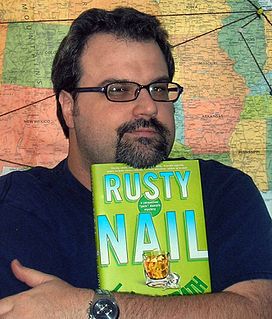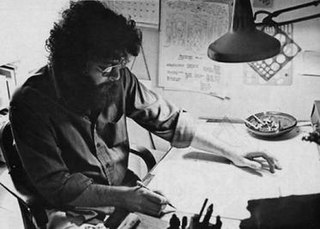A Quote by Ben Cohen
We learned that a product doesn't sell just because you're trying to do good in the world. You still have to have a healthy distribution, a good marketing strategy, and price the product properly.
Related Quotes
When I die and go to hell, the devil is going to make me the marketing director for a cola company. I’ll be in charge of trying to sell a product that no one needs, is identical to its competition, and can’t be sold on its merits. I’d be competing head-on in the cola wars, on price, distribution, advertising, and promotion, which would indeed be hell for me. Remember, I’m the kid who couldn’t play competitive games. I’d much rather design and sell products so good and unique that they have no competition.
To improve global health, it's not enough just to have a really good new product and to obtain marketing approval. You still need to market the product and bring it to patients, follow up, create the infrastructure, and so on - the whole pipeline, the network. That's something that companies are extremely good at: organizing a whole pipeline in a cost-effective way.
Too many companies believe that all they must do is provide a 'neat' technology or some 'cool' product or, sometimes, just good, solid engineering. Nope. All of those are desirable (and solid engineering is a must), but there is much more to a successful product than that: understanding how the product is to be used, design, engineering, positioning, marketing, branding-all matter. It requires designing the Total User Experience.
Superior sales and distribution by itself can create a monopoly, even with no product differentiation. The converse is not true. No matter how strong your product-even if it easily fits into already established habits and anybody who tries it likes it immediately-you must still support it with a strong distribution plan.
Good design is innovative
2. Good design makes a product useful
3. Good design is aesthetic
4. Good design makes a product understandable
5. Good design is unobtrusive
6. Good design is honest
7. Good design is long-lasting
8. Good design is thorough, down to the last detail
9. Good design is environmentally friendly
10. Good design is as little design as possible
Traditional sales and marketing involves increasing market shares, which means selling as much of your product as you can to as many customers as possible. One-to-one marketing involves driving for a share of customer, which means ensuring that each individual customer who buys your product buys more product, buys only your brand, and is happy using your product instead of another to solve his problem. The true, current value of any one customer is a function of the customer's future purchases, across all the product lines, brands, and services offered by you.



































